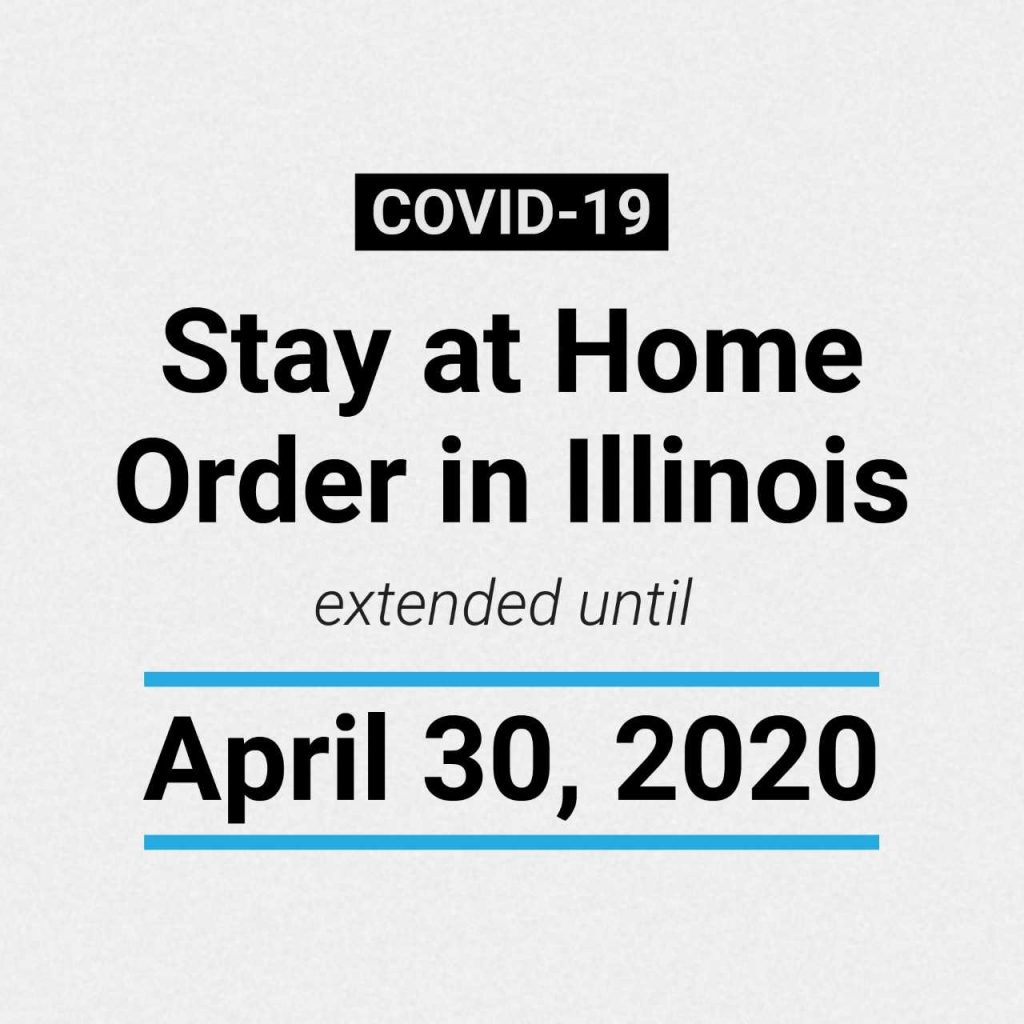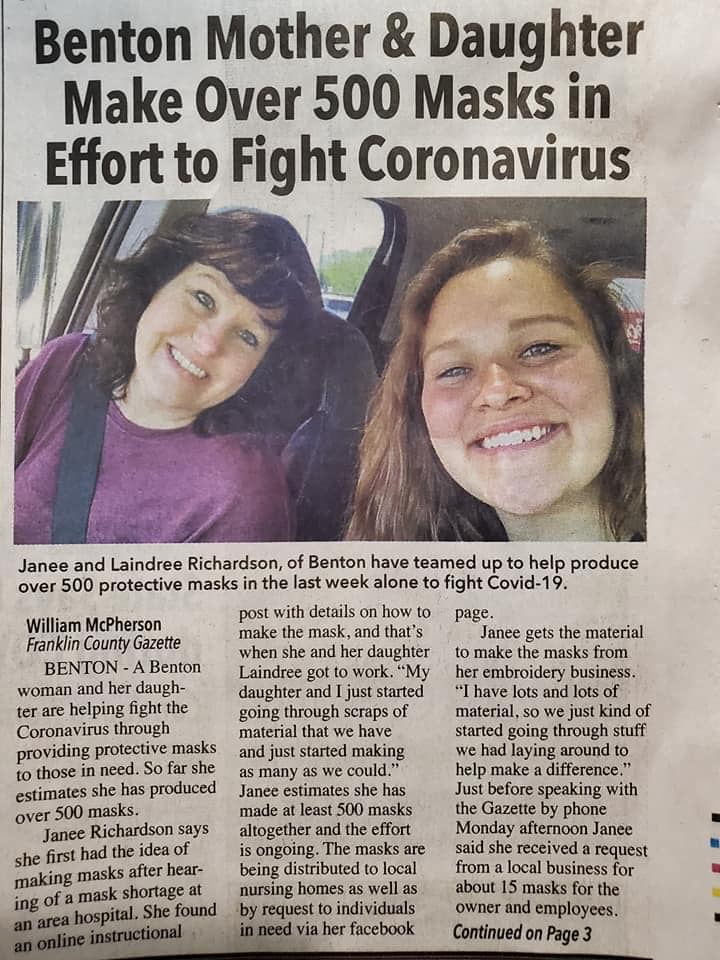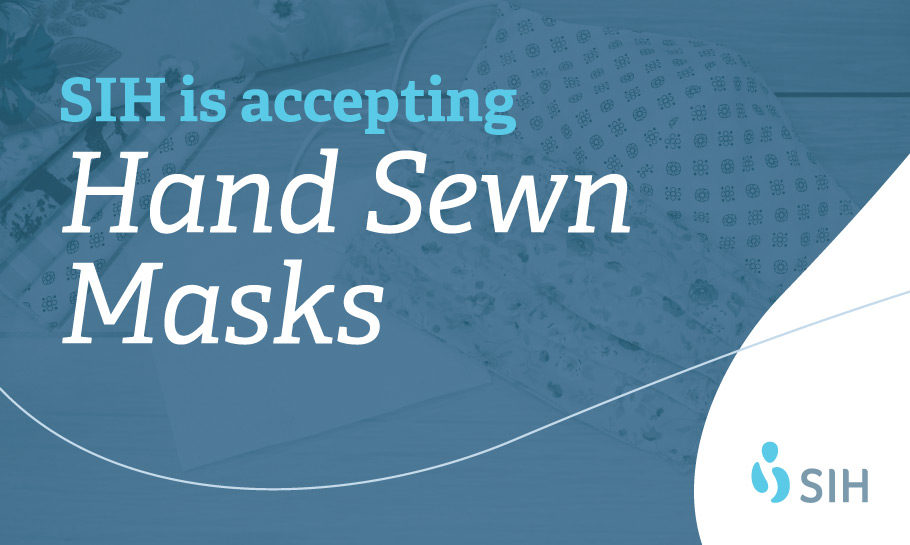Dear Friend,
FIND THE LINK TO ALL THE LATEST COVID-19 INFORMATION AND BREAKING NEWS HERE
STATE OF ILLINOIS CORONAVIRUS WEB SITE
This week, Gov. Pritzker extended his previous stay-at-home order for another 30 days. Continuing efforts to flatten the curve of new COVID-19 cases in Illinois, Governor Pritzker announced this week that he would sign a 30-day extension of the state’s disaster proclamation on April 1.
The disaster proclamation provides the governor the authority to sign additional executive orders, extending the Stay at Home order and suspending on-site learning in K-12 schools through the month of April. The April 30 reset date was included in the Governor’s Executive Order 2020-18.

The extension of the Stay at Home order will continue to permit essential activities that will allow Illinoisans to meet their necessities while maintaining social distance from others. Grocery stores, gas stations, pharmacies and other businesses providing services deemed essential will not close.
Staying at home and social distancing are the paramount strategies for minimizing the spread of COVID-19 in our communities. If you are experiencing symptoms please call a health care provider to arrange medical treatment without putting others at risk of exposure.
The Illinois Department of Public Health has a statewide COVID-19 hotline and website to answer any questions from the public or to report a suspected case: call 1-800-889-3931 or visit IDPH.illinois.gov.
#AllinIllinois Initiative Launched – Celebrities Spread Stay Home Message – Print a Sign. Change your Facebook Profile Pic. Stay Home. Save Lives.
https://www.enjoyillinois.com/allinillinois

Change your Facebook Profile to Show an All In Illinois frame by visiting the link below: https://www.facebook.com/profilepicframes/?selected_overlay_id=2351862688445284
Should you wear a mask when grocery shopping/visiting the pharmacy/picking up food?
With the instruction and encouragement of the CDC to wear face masks when out in the community, I wore one this weekend for the first time while grocery shopping. It felt a little strange at first, and it took some getting used to, as in looking down for grocery items, etc. But, after all was said and done, it was no big deal and I felt like I was doing my small part to help stop the spread. I encourage you to do the same, whether the masks be purchased or hand made. As my good friend and Franklin County Emergency Management Director Ryan Buckingham said to me, “ it’s better to be safe than sorry.”
Thank you ‘Southern Illinois Sewing Warriors’ for making hundreds of masks for frontline workers. The Southern Illinoisan and Molly Parker for sharing some uplifting news. You can read the story by clicking the link below.
The Southern: Meet Southern Illinois’ sewing warriors. They’re making hundreds of masks for front-line workers.

Benton Evening News Reports on Groups Making Masks
SIH Accepting Homemade Masks for Health Care Workers
Southern Illinois Health Care (SIH) is now accepting homemade fabric masks, commercially manufactured masks, goggles that provide full eye protection (front and sides) and clear plastic face shields. SIH asks that all masks be free of interfacing.
Donation Locations
Donations will be accepted Monday through Friday from 8 a.m. – 4:30 p.m. at the entrances of the SIH Corporate Office on the southeast side of University Mall in Carbondale. Learn more here: https://www.sih.net/covid19-response/mask-donation

Unemployment filing schedule enacted
April 2, 2020

To more efficiently process the extremely high volume of unemployment benefit claims due to COVID-19, IDES has implemented the following schedule for those filing claims online and over the phone:
Online Filing Schedule:
- Those with last names beginning with letters A-M will be asked to file their claims on Sundays, Tuesdays, or Thursdays.
- Those with last names beginning with letters N-Z will be asked to file their claims on Mondays, Wednesday, Fridays.
- Saturdays will be available for anyone to accommodate those who could not file during their allotted window.
Call Center Filing Schedule:
- Those with last names beginning with letters A-M will be asked to call on Tuesdays and Thursdays between 7:30am – 6pm.
- Those with last names beginning with letters N-Z will be asked to call on Mondays and Wednesdays between 7:30am – 6pm.
- Fridays (7:30am – 6pm) will be available for anyone to accommodate those who could not file during their allotted window.
The day or time of day in which a claim is filed will not impact whether you receive benefits or your benefit amount. Additionally, claims will be back-dated to reflect the date in which a claimant was laid-off or let go from their job due to COVID-19.
Note: The days in which you can file a claim may be different from the days in which you are asked to certify.
- More information if you become unemployed
- Unemployment Insurance Claim questions: (800) 244-5631
- IDEA Unemployment Insurance Benefits Handbook
Small Business Assistance Available
Significant financial assistance is being made available for small businesses during the COVID-19 Pandemic:
Small Business Administration
The U.S. Small Business Administration is administering low-interest disaster loans to businesses and non-profits of all sizes that have sustained economic injury caused by the COVID-19 Pandemic.
Express Bridge Loan Pilot Program
The loan program allows small businesses that currently have a relationship with a SBA Express Lender to access up to $25,000 in loans to bridge the gap while waiting for Economic Injury Disaster Loan dollars. More here.
Paycheck Protection Program Loans
This program prioritizes millions of Americans employed by small businesses by authorizing up to $349 billion toward job retention and certain other expenses. Small businesses and eligible nonprofit organizations, Veterans organizations, and Tribal businesses described in the Small Business Act, as well as individuals who are self-employed or are independent contractors, are eligible if they also meet program size standards. Under this program:
- Eligible recipients may qualify for a loan up to $10 million determined by 8 weeks of prior average payroll plus an additional 25% of that amount.
- Loan payments will be deferred for six months.
- If you maintain your workforce, SBA will forgive the portion of the loan proceeds that are used to cover the first 8 weeks of payroll and certain other expenses following loan origination
Applications for these SBA loans
CARES Act – Federal Government
The U.S. Senate has also compiled an extensive Q&A list covering the Coronavirus Aid, Relief, and Economic Security Act (CARES Act) passed by the federal government last week.
Congress approved and the President has signed the Coronavirus Aid, Relief, and Economic Security Act (CARES) today. The $2.2 trillion economic rescue package provides help for families, small business, hospitals, local governments and others. Below is a brief outline of the CARES Act:
HELP FOR FAMILIES
Up to $1,200 in economic recovery checks to individuals ($2,400 for joint filers) with an additional $500 for each dependent.
Income eligibility based on 2019 returns if filed, or 2018 if unfiled:
- Individuals with Adjusted Gross Income (AGI) below $75,000 are eligible for $1,200
- Married with AGI below $150,000 are eligible for $2,400
- Phases out above these thresholds to zero for those making more than $99,000 individually and $198,000 jointly.
The U.S. Treasury will direct deposit the money in your bank if they have that information from your 2018 or 2019 tax return.
Seniors: Appropriates $820 million in Older Americans Act funding for senior meals services and family caregiver programs.
Provides $8.8 billion in supplemental funding for child nutrition programs, $450 million for TEFAP (food pantry funding), and $15.5 billion in additional SNAP funding.
Student Loan Debt: Suspends student loan monthly payments for 6 months
Transit; Allocates $25 billion in federal transit formula funding to keep public transit operating throughout Illinois in order to ensure continued access to jobs, medical treatment, food, and other essential services. Illinois transit agencies will receive an estimated $1.6 billion in federal transit funding including $800 million for the CTA, over $400 million for Metra, and over $100 million for Pace.
Unemployment Assistance: Provides for Unemployment Assistance for up to 4 months.
- Creates a temporary Federal Pandemic Unemployment Assistance Program through December 31, 2020 that provides an additional $600/week in unemployment benefits for up to 4 months.
- Self-employed and contracted individuals unable to work are eligible for a federal compensation payment equal to 1⁄4 the state’s average weekly benefit plus the $600/week Federal Pandemic Unemployment Assistance.
- Recent college graduates and new job entrants could receive a federal benefit equaling $300/week.
Eviction Moratorium: 120-day eviction moratorium for renters in federally-assisted housing.
Mortgage Forbearance: Prohibits foreclosures on all federally-backed mortgage loans for 60-days. Provides up to 360 days of forbearance for borrowers of a federally-backed mortgage loan.
Increased Housing Assistance: $3 billion in rental assistance to help more than 4.5 million low-income households in federally-assisted housing and $4 billion to assist individuals and families experiencing homelessness.
Broadband: $100 million for USDA’s ReConnect program and $25 million for distance learning and telemedicine in rural areas. The bill also provides $200 million for the Federal Communications Commission’s Connected Care Pilot Program to support telehealth.
HELP FOR SMALL BUSINESS
Provides $350 billion to create a new Paycheck Protection Loan program offered to small businesses with less than 500 employees at a maximum of $10 million/business.
- Lenders are given delegation authority meaning these can be in the hands of small businesses without time consuming SBA authorization.
- Amounts used to cover payroll costs, mortgage interest payments, rent, and utility bills over an 8-week period will be forgiven if the business retains employees (flexibility to allow businesses to rehire those already laid off).
- Protects the franchise model by allowing this loan to be granted at the store/location level.
- Individuals who have received an SBA Economic Injury Disaster loan are not eligible, however refinancing options are being explored.
HELP FOR HOSPITALS AND HEALTH CARE PROVIDERS
Allocates $100 billion in direct, emergency funding to meet the immediate needs of front-line hospitals and health providers who have been strained by the coronavirus response.
Illinois is projected to be eligible for billions of dollars of emergency funding for health providers and facilities. The grant funding is available for non-reimbursable COVID-19 expenditures (surge staffing, equipment acquisition, construction) and lost revenues (such as canceled procedures), including both future costs and those already incurred. The bill also provides for advanced and increased Medicare payments to hospitals and expands telehealth services.
Provides $1.3 billion in supplemental funding for Community Health Centers (CHCs): , while also extending the authorization for their mandatory funding to November 30.
HELP FOR SCHOOLS
Education Stabilization Fund: $30.75 billion to school districts and institutions of higher education.
HELP FOR LOCAL & STATE GOVERNMENT
Provides $150 billion for State and Local governments (500,000 or more population) through direct payments from the Treasury based on the state’s relative population.
Allocates $45 billion in additional funding for the Disaster Relief Fund, which more than doubles the available funding to assist states and private non-profits performing critical services under the President’s emergency declaration. The Fund can be used for things like personal protective equipment as well as reimburse costs of National Guard deployments, something Durbin and Duckworth have called on the Federal Government to do.
Includes $31.9 million in Byrne-JAG grant program funding for Illinois law enforcement to buy personal protective equipment.
Illinois fire departments can apply for Assistance for Firefighter grants, of which $100 million would be available nationwide, to buy personal protective equipment.
Election Assistance: Provides $400 million for states to help prepare for the 2020 election cycle, including an estimated $13.9 million for Illinois, by increasing the ability to vote by mail, expanding early voting and online registration, and increasing the safety of voting in-person by providing additional voting facilities and more poll-workers.
HELP FOR VETERANS
Includes $19.5 billion for the VA, including $15.8 billion in funds for direct medical care, as well as $3 billion to strengthen VA Facilities and Information Technology systems to support telemedicine. The bill also includes $150 million in additional construction grants for State Veterans Homes to help support any necessary renovation efforts to respond to coronavirus.
The bill provides $1.4 billion to sustain up to 20,000 members of the National Guard, under the direction of the governors of each state including Illinois, for the next six months in order to support state and local response efforts.
Department of Human Services Launches Coronavirus Hotline

State expanding services to protect domestic violence survivors
April 3, 2020

Domestic Violence Helpline: 1-877-863-6338
The Illinois Department of Human Services (IDHS) has launched a $1.2 million plan to increase the capacity of its current statewide network of services for domestic violence and sexual assault survivors during the current COVID-19 pandemic.
According to IDHS, domestic violence and sexual violence often increase during times of crisis which is why this additional action is needed.
The plan expands the role of the Domestic Violence Helpline by creating a one-stop access point for shelter needs. Survivors may call the Helpline directly at 1-877-TO END DV (1-877-863-6338 voice or 1-877-863-6339 TTY) and be connected to shelter through existing Domestic Violence Prevention and Intervention (DVPI) shelter services or to an emergency shelter through available hotels and motels. Survivors also may contact their local domestic violence programs for shelter assistance.
IDHS is also working with the Illinois Coalition Against Domestic Violence to establish an emergency fund to support local providers with assistance needs related to COVID-19.
In addition, DVPI providers will receive a three-month advance of their current grant to support continuations of services and respond to the needs of domestic violence survivors, such as hotels, emergency supplies, transportation, food, technology supports and other related services.
IDHS will provide the Illinois Coalition Against Sexual Assault with a grant advance to enhance the capacity of local rape crisis centers statewide to aid sexual assault survivors. The agency also will advance grant funds to Partner Abuse Intervention Program grantees for programs costs related to COVID-19.
Stay Connected!
Throughout the rest of this crisis, my office will only be offering remote constituent service. You can contact my office staff by calling 618-440-5090 or email me at [email protected]. Please stay safe and heed the warnings from elected officials.